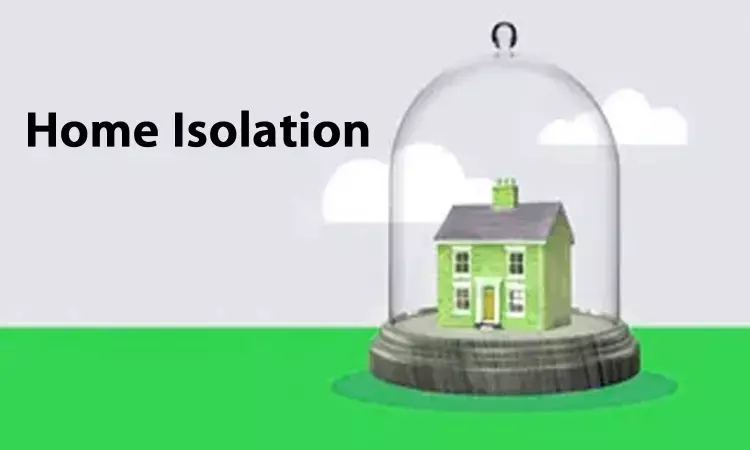- Home
- Medical news & Guidelines
- Anesthesiology
- Cardiology and CTVS
- Critical Care
- Dentistry
- Dermatology
- Diabetes and Endocrinology
- ENT
- Gastroenterology
- Medicine
- Nephrology
- Neurology
- Obstretics-Gynaecology
- Oncology
- Ophthalmology
- Orthopaedics
- Pediatrics-Neonatology
- Psychiatry
- Pulmonology
- Radiology
- Surgery
- Urology
- Laboratory Medicine
- Diet
- Nursing
- Paramedical
- Physiotherapy
- Health news
- Fact Check
- Bone Health Fact Check
- Brain Health Fact Check
- Cancer Related Fact Check
- Child Care Fact Check
- Dental and oral health fact check
- Diabetes and metabolic health fact check
- Diet and Nutrition Fact Check
- Eye and ENT Care Fact Check
- Fitness fact check
- Gut health fact check
- Heart health fact check
- Kidney health fact check
- Medical education fact check
- Men's health fact check
- Respiratory fact check
- Skin and hair care fact check
- Vaccine and Immunization fact check
- Women's health fact check
- AYUSH
- State News
- Andaman and Nicobar Islands
- Andhra Pradesh
- Arunachal Pradesh
- Assam
- Bihar
- Chandigarh
- Chattisgarh
- Dadra and Nagar Haveli
- Daman and Diu
- Delhi
- Goa
- Gujarat
- Haryana
- Himachal Pradesh
- Jammu & Kashmir
- Jharkhand
- Karnataka
- Kerala
- Ladakh
- Lakshadweep
- Madhya Pradesh
- Maharashtra
- Manipur
- Meghalaya
- Mizoram
- Nagaland
- Odisha
- Puducherry
- Punjab
- Rajasthan
- Sikkim
- Tamil Nadu
- Telangana
- Tripura
- Uttar Pradesh
- Uttrakhand
- West Bengal
- Medical Education
- Industry
Social isolation may up heart attack and death risk

London- Researchers have revealed that people who are socially isolated are over 40 per cent more likely to have a cardiovascular event, such as a heart attack or stroke, than those who were socially integrated.
The study also found that those who are socially isolated are almost 50 per cent more likely to die from any cause.
"We have known for some time that feeling lonely or lacking contact with close friends and family can have an impact on your physical health," said study researcher Dr Janine Gronewold from University Hospital in Essen, Germany.
"What this study tells us is that having strong social relationships is of high importance for your heart health and similar to the role of classical protective factors such as having a healthy blood pressure, acceptable cholesterol levels, and normal weight," Gronewold added.
For the findings, the researchers analysed data from 4,316 individuals (average age 59.1 years) who were recruited into the large community-based study between 2000 and 2003.
The participants entered the study with no known cardiovascular disease and they were followed for an average of 13 years.
At the start of the research, information was collected on different types of social support, with social integration assessed based on marital status and cohabitation, contact with close friends and family, and membership of the political, religious, community, sports or professional organisations.
During the 13.4 years of follow-up, 339 cardiovascular events such as heart attacks or strokes occurred, and there were 530 deaths among the study participants.
After adjusting for other factors that might have contributed to these events and deaths (for example, standard cardiovascular risk factors), a lack of social integration was found to increase the future risk of cardiovascular events by 44 per cent and to increase the risk of death from all causes by 47 per cent.
The findings showed that a lack of financial support was associated with a 30 per cent increased risk of cardiovascular events.
"This observation is of particular interest in the present discussion on the COVID-19 pandemic, where social contacts are or have been relevantly restricted in most societies," Gronewold said.
"We need to take this seriously, work out how social relationships affect our health, and find effective ways of tackling the problems associated with social isolation to improve our overall health and longevity," said study researcher Dirk M Hermann.
The study is scheduled to be presented on May 23 at the European Academy of Neurology (EAN) Virtual Congress.
Last month, another research published in the journal Thorax, found that social isolation is linked to a heightened risk of hospital admission for respiratory disease among older adults.
Medical Dialogues Bureau consists of a team of passionate medical/scientific writers, led by doctors and healthcare researchers. Our team efforts to bring you updated and timely news about the important happenings of the medical and healthcare sector. Our editorial team can be reached at editorial@medicaldialogues.in.
Dr Kamal Kant Kohli-MBBS, DTCD- a chest specialist with more than 30 years of practice and a flair for writing clinical articles, Dr Kamal Kant Kohli joined Medical Dialogues as a Chief Editor of Medical News. Besides writing articles, as an editor, he proofreads and verifies all the medical content published on Medical Dialogues including those coming from journals, studies,medical conferences,guidelines etc. Email: drkohli@medicaldialogues.in. Contact no. 011-43720751


